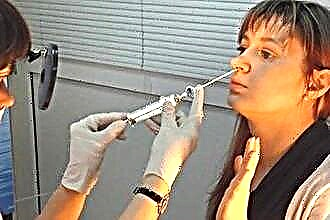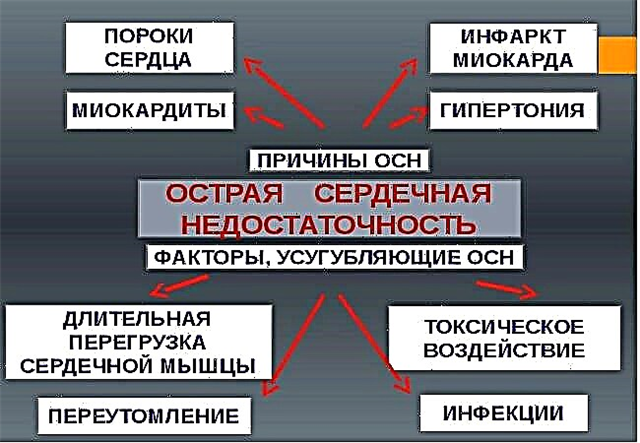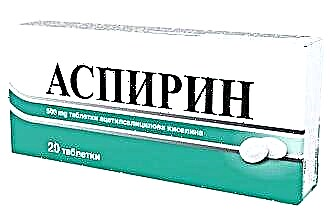Frontitis is becoming an increasingly common respiratory disease, the development of which is largely facilitated by poor environmental conditions and the uncontrolled use of antibiotics. Many are interested in how to treat frontal sinusitis at home, but you should not do it yourself. It is necessary to understand that this is not a disease that can be left on its own.
Causes and symptoms
Most often, frontal sinusitis develops after other respiratory diseases - acute or chronic. Factors contributing to its appearance,  are: weakened immunity, exposure to physical or chemical irritants, frequent allergic reactions. Smoking significantly increases the risk of any respiratory diseases, as it leads to atrophy and thinning of the mucous membranes, as a result of which its protective functions are significantly reduced.
are: weakened immunity, exposure to physical or chemical irritants, frequent allergic reactions. Smoking significantly increases the risk of any respiratory diseases, as it leads to atrophy and thinning of the mucous membranes, as a result of which its protective functions are significantly reduced.
Home treatment is ineffective in most cases... Therefore, doctors strongly recommend that you consult a doctor if you find you have the following symptoms:
- headache localized in the middle of the forehead;
- a feeling of heaviness and swelling in the brow;
- profuse nasal discharge (especially purulent);
- significant or prolonged increase in body temperature;
- shortness of breath, swelling and redness of the nasal mucosa;
- redness of the inner corners of the eyes, photophobia;
- swelling and swelling of the upper eyelid on one side.
It is possible to diagnose frontal sinusitis only after the examination. But his treatment should be started immediately, and the doctor will tell you how to do it.
Treatment regimen
For the treatment of frontal sinusitis, there is a general treatment regimen that is aimed at quickly relieving puffiness, stopping inflammatory processes and eliminating the underlying cause of the disease. It usually includes:
- Medicines of several groups: antibiotics, antihistamines, antipyretic, anti-inflammatory, antifungal, etc. They are prescribed after laboratory tests and diagnostic examination, which help determine the cause of the disease and the type of pathogenic microorganisms that caused it (if present).
 Rinsing the nose and sinuses. An obligatory element of treatment, with the help of which the nose is cleared of accumulations of mucus and pus. Saline or antiseptic solutions are used to treat the nasal cavity and frontal sinuses. You can do this yourself, sucking in and then blowing out the solution with your nose, or using a syringe. Hospitals use a catheter to flush sinuses through a natural opening.
Rinsing the nose and sinuses. An obligatory element of treatment, with the help of which the nose is cleared of accumulations of mucus and pus. Saline or antiseptic solutions are used to treat the nasal cavity and frontal sinuses. You can do this yourself, sucking in and then blowing out the solution with your nose, or using a syringe. Hospitals use a catheter to flush sinuses through a natural opening.- Steam inhalation. An excellent remedy for the treatment of all types of respiratory diseases. At home, use herbal decoctions, potato steam or essential oils dissolved in hot water. Combined medications can be used in a hospital and a polyclinic. After inhalation, the mucus liquefies and its active discharge begins. But with severe edema, it cannot be done, since the canal to the nasal passage is closed and mucus stagnation forms.
- Frontal puncture. It is prescribed only when it is not possible to remove the pus accumulated in the frontal sinus in other ways. The procedure is performed in a hospital under local anesthesia. After pumping out the pus, the sinus is thoroughly washed with an antiseptic solution and irrigated with medications. If necessary, a drain can be installed to allow the fluid to drain freely. On day 3-4, it is removed, and the wound heals quickly.
Traditional methods of treatment are most often used as additional ones and, in combination with correctly selected drugs, give an excellent effect. Only folk remedies can cure frontal sinusitis only at an early stage, therefore, it is advisable to use them under the supervision of a doctor.
Features of therapy
But the general treatment regimen always needs adjustments, depending on many factors: the patient's age, the severity of the disease, the presence of complications, and the individual characteristics of the organism. Without this, the effectiveness of the treatment is sharply reduced, since side effects may be connected or the chosen technique will be unable to cure the very cause of the disease.
Here are some considerations for choosing therapies in different situations:
 Infectious frontalitis. It is rarely possible to overcome without the use of antibacterial drugs. If they cannot be used for medical reasons, then proven folk remedies with similar properties can help. They will not give such a quick effect, but many plants are able to inhibit the growth of pathogens. Although the modern level of development of medicine allows you to choose a drug even for allergy sufferers and pregnant women. The main thing is not to do it yourself and strictly observe the dosage.
Infectious frontalitis. It is rarely possible to overcome without the use of antibacterial drugs. If they cannot be used for medical reasons, then proven folk remedies with similar properties can help. They will not give such a quick effect, but many plants are able to inhibit the growth of pathogens. Although the modern level of development of medicine allows you to choose a drug even for allergy sufferers and pregnant women. The main thing is not to do it yourself and strictly observe the dosage.- Acute purulent frontal sinusitis. The most dangerous type of disease in which complications develop rapidly. In the absence of a visible effect from conservative treatment (within 3-5 days), forced pumping of pus by frontal puncture is applied. Otherwise, the risk of developing serious complications is high. The puncture is performed only in a hospital setting and for the next several days the patient remains under medical supervision.
- Viral frontalitis. It is most quickly treated with antiviral drugs: Anaferon, Amizon, Interferon, etc. But the use of these funds makes sense only in the first 48 hours after the onset of the disease, that is, in the acute form. If time has been lost, then neither antiviral nor antibacterial drugs will be effective. Then it is better to direct forces to strengthen the immune defense and apply anti-inflammatory and decongestants.
- Polypoid frontal sinusitis. It is caused by the proliferation of polyps in the nasal cavity or the frontal sinus itself. Frontitis provokes the overlap by the body of the polyp or nearby tissues of the passage connecting the nasal cavity with the sinus. Stagnation of mucus is formed and the inflammatory process begins. Until the problem is solved radically, by surgical removal of the polyp, any treatment will only give temporary results.
- Chronic frontal sinusitis. It is excellently supported in the stage of remission by folk remedies. However, they will not be able to completely get rid of the disease with their help. If the elimination of the cause that provoked the chronic form is impossible, then alternative methods of treatment are an excellent option to prolong the period of remission as much as possible. When the cause can, in principle, be eliminated, it is better to first undergo an intensive course of treatment, and then support yourself with folk recipes.
If frontal sinusitis develops during pregnancy, the doctor should decide how to treat it. Most drugs: antibiotics, anti-inflammatory and vasoconstrictor drugs are contraindicated during this period.
At an early stage, folk remedies will help to cope with the problem, which must also be chosen very carefully. And it is better not to allow the occurrence of acute frontal sinusitis. Simple but effective prevention measures can help you do this.
Disease prevention
Most often, acute frontalitis is caused by acute respiratory infections or acute respiratory viral infections, which have not been treated at all or have not been completely treated. If the immune system works well, then the body independently copes with the remnants of viruses or infections, and it is enough to just help it a little with folk remedies.
The first means of preventing frontal sinusitis and other types of sinusitis is to strengthen the immune system.This must be done constantly, using all available means: immunomodulating drugs, multivitamin complexes, hardening procedures, breathing exercises.
It is equally important to take measures to prevent the onset and rapid development of the disease:
 avoid drafts and severe hypothermia;
avoid drafts and severe hypothermia;- completely cure runny nose and other respiratory diseases;
- in cold and windy weather, be sure to wear a hat;
- when working in hazardous industries, use personal protective equipment;
- maintain a moderate temperature and humidity in the working and living quarters;
- do not use antibiotics on their own, and if they are prescribed, strictly adhere to the scheme and the duration of their intake.
During pregnancy and the period of breastfeeding, it is advisable not to visit crowded places, especially during the off-season, when outbreaks of massive respiratory diseases appear.
When it was not possible to avoid the disease, be sure to consult a doctor, even if you plan to use traditional medicine.

 Rinsing the nose and sinuses. An obligatory element of treatment, with the help of which the nose is cleared of accumulations of mucus and pus. Saline or antiseptic solutions are used to treat the nasal cavity and frontal sinuses. You can do this yourself, sucking in and then blowing out the solution with your nose, or using a syringe. Hospitals use a catheter to flush sinuses through a natural opening.
Rinsing the nose and sinuses. An obligatory element of treatment, with the help of which the nose is cleared of accumulations of mucus and pus. Saline or antiseptic solutions are used to treat the nasal cavity and frontal sinuses. You can do this yourself, sucking in and then blowing out the solution with your nose, or using a syringe. Hospitals use a catheter to flush sinuses through a natural opening. Infectious frontalitis. It is rarely possible to overcome without the use of antibacterial drugs. If they cannot be used for medical reasons, then proven folk remedies with similar properties can help. They will not give such a quick effect, but many plants are able to inhibit the growth of pathogens. Although the modern level of development of medicine allows you to choose a drug even for allergy sufferers and pregnant women. The main thing is not to do it yourself and strictly observe the dosage.
Infectious frontalitis. It is rarely possible to overcome without the use of antibacterial drugs. If they cannot be used for medical reasons, then proven folk remedies with similar properties can help. They will not give such a quick effect, but many plants are able to inhibit the growth of pathogens. Although the modern level of development of medicine allows you to choose a drug even for allergy sufferers and pregnant women. The main thing is not to do it yourself and strictly observe the dosage. avoid drafts and severe hypothermia;
avoid drafts and severe hypothermia;

